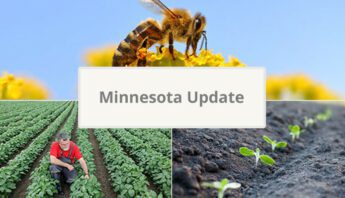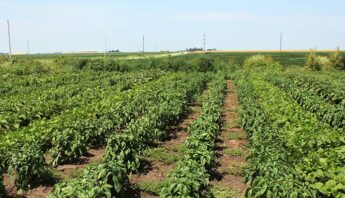It’s been a minute, and there’s much news to discuss. We want to update you on a few recent top stories in the pesticide and environmental action world, and also take a moment to thank you for your support of this work.
PAN has been busy over the last few months both at home and abroad. We welcomed our new Executive Director in December of last year, celebrated big wins in California, Minnesota, and at the international level, and remain engaged in federal Farm Bill activism as well.
There is always work to do, and we are grateful for your tireless support and continued activism. Our Action Center contains all of our current opportunities for petitioning and writing letters to policymakers, so please take a moment to make sure you have spoken up on the issues that matter to you, and read on for updates on the latest in pesticide and agroecology news.
 In Solidarity,
In Solidarity,
Kayla Nichols
Communications Director
Pesticide Action Network
Sign on to receive the Latest News direct to your inbox
EPA will not appeal dicamba decision
Good news! There will be no appeal of the court decision that removed the registration of dicamba for over-the-top use of dicamba on soybeans and cotton this year.
While the February 6 court decision directed that the use of dicamba be halted for over-the-top applications on soybeans and cotton, the EPA is unfortunately allowing the use of existing stock of dicamba under the old use-label guidelines for the 2024 growing season. But, the fact that EPA has decided not to appeal the decision is good, because it means that one of the most dangerous application methods for one of the most toxic pesticides in use in the U.S. will halt after the 2024 growing season.
That said, we must continue to be diligent because the lack of an appeal means EPA would have to consider a new registration, and it is highly likely that the manufacturer of dicamba will attempt to re-register it with a new use-label. And, while this restriction is a step in the right direction, we must continue to advocate for a full dicamba ban.
Sulfoxaflor ban upheld in California
More good news! In a win for beekeepers, sulfoxaflor—an insecticide linked to a nation-wide honey bee die-off—will remain banned in California. Sulfoxaflor belongs to a class of insecticides that also includes neonicotinoids. These chemicals are systemic, meaning they are absorbed by growing plants and persist in the plants’ tissues.
History: In 2021, Earthjustice won a lawsuit challenging the California Department of Pesticide Regulation’s decision to approve sulfoxaflor for use in California. Both the Department and sulfoxaflor’s manufacturer, Dow AgroSciences, appealed the trial court’s decision. But last week, the Court of Appeal dismissed the appeal, making sulfoxaflor no longer legally usable in the state.
Earthjustice is also representing the Pollinator Stewardship Council and the American Beekeeper Federation in a separate lawsuit targeting the EPA’s federal approval of sulfoxaflor in 2019. Sulfoxaflor was previously banned by the EPA in 2015, but that ban was reversed in 2019 when the EPA stopped tracking honeybee colony counts.
It’s beyond time EPA listens to the science rather than bowing to political or industrial pressure. We know that EPA and the pesticide industry are connected by a revolving door, but why aren’t they getting dizzy?
Do you know what’s on your food?
In the category of “Things We Wished Were Surprising,” Consumer Reports and The Guardian recently published a report detailing the extent of pesticides present in U.S. produce. The results were unsurprising but alarming nonetheless. Consumer Reports analyzed seven years of data from the USDA looking at 59 common fruits and vegetables (fresh, canned, dried, and/or frozen).
The researchers analyzed both organic and non-organic produce, and of the food examined, 20% had pesticide levels which posed “significant risks.” Included in that 20% were some of these most popular choices like bell peppers, blueberries, green beans, potatoes, and strawberries. Disturbingly, some foods had residues of pesticides that have been banned for use on food in the U.S. for more than a decade.
On the bright side, nearly all the organic samples were deemed safe. So, what does this mean and how can you safeguard yourself from pesticide residues? Be informed about which fruits and vegetables are more likely to contain pesticide residues, and choose to buy organic whenever possible. In addition to this report, there are other resources that can help you make informed decisions like the “Dirty Dozen” list from the Environmental Working Group. You can also check out this resource on our website.
Research finds evidence that diversifying agriculture has environmental and social benefits
A study recently published in Science concludes that diversified agriculture creates positive environmental and social outcomes. The researchers assessed social aspects such as human well-being, yields, and food security; and environmental aspects such as biodiversity, ecosystem services, and reduced environmental externalities.
Importantly, Rasmussen et. al conclude that these benefits can only be realized through well-designed policies that incentivize the adoption of multiple diversification strategies at once.
Diversified farmers have known since the 1800s that agroecology provides better solutions. However, it’s validating to see the evidence laid out so clearly and we hope that with more study of agroecology and its social and environmental benefits, we can begin to see more and more adoption of the principles of agroecology into policies at the local, state, federal, and international levels.








